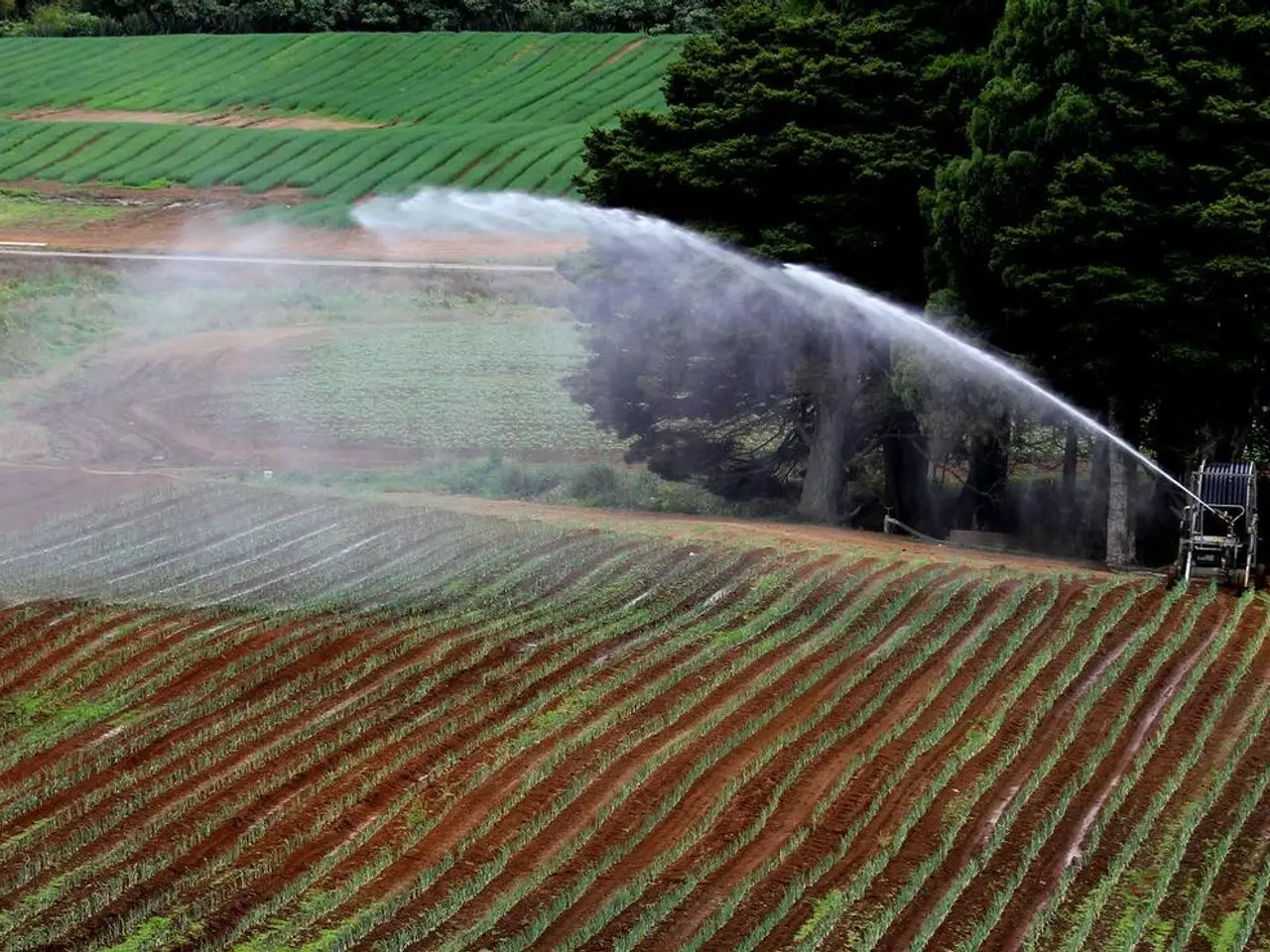Enhancing Crop Yield through Agroecological Practices
In a bid to promote a healthier ecosystem and contribute to sustainable crop production, many farmers are turning to agroecological principles. This farming method, which works with nature, focuses on natural processes and encourages a variety of plants and animals, promoting biodiversity.
Transitioning to organic farming requires education and a detailed plan. Learning through books, workshops, and talking to other organic farmers is crucial. Making a plan that includes what crops to grow and how to manage pests naturally is essential. Before diving in, assessing the land and existing practices to determine necessary changes is an important step.
Starting small is a practical approach. Beginning with a small section of the farm to test organic practices before going all in can help ensure success. Simple techniques to increase crop variety include intercropping, polyculture, and agroforestry.
Crop diversification through intercropping, crop rotation, and integrating different types of crops or livestock within the same system is key. This can be spatial (different crops in the same field) or temporal (rotating crops across seasons). It helps disrupt pest cycles, supports pollinators, improves soil fertility and structure, and reduces risks from climate and market shocks.
Cover crops, such as legumes, are planted during the off-season. They prevent soil erosion, suppress weeds, add organic matter, and fix nitrogen to enhance soil fertility. Agroforestry, which combines trees with crops or livestock, improves biodiversity and soil quality by adding organic matter and enhancing microclimates.
Integrated pest management using natural or organic methods to reduce reliance on chemical pesticides while protecting crop health is another important aspect. The use of organic amendments like compost, green manure, and animal manures that add nutrients and improve soil structure is also crucial. Direct seeding or no-till practices that reduce soil disturbance, helping maintain soil structure, water retention, and microbial health, are beneficial.
Together, these methods create resilient agroecosystems that maintain or improve soil health and increase crop diversity, supporting sustainable production and ecosystem services. Agroecological practices also reduce the use of harmful chemicals, leading to less pollution.
Moreover, agroecology leads to healthier crops that grow stronger and resist pests better. Diverse crops attract beneficial insects that help control pest populations, such as ladybugs feeding on aphids. Crop rotation is used to prevent soil depletion and keep nutrients balanced.
After following organic practices for a few years, farmers can apply for organic certification, allowing them to market their produce as organic. Embracing agroecological principles contributes to a healthier ecosystem, healthier crops, and a cleaner environment. By working with nature, farmers can create resilient and sustainable farming systems.
References:
[1] Altieri, M. A., & Nicholls, C. (2011). Agroecology for food sovereignty: Territorial approaches to sustainable peasant agriculture. Agriculture and Human Values, 28(3), 379-389.
[2] Gliessman, S. R. (2007). Agroecology: The ecology of sustainable agriculture and food systems. Elsevier.
[3] Ingram, D. L., & Ostertag, J. (2013). Agroecology and the search for sustainability: A review of the literature. Journal of Sustainable Agriculture, 37(6), 733-748.
[4] Pretty, J., Sustainable agriculture: A practical guide for farmers, policymakers, and researchers. Earthscan, 2001.
- The quality of organic produce, attained through organic farming, is initially sought after by those committed to a healthier lifestyle and environmental conservation.
- Organic certification, a testament to adherence to rigorous standards, is valued in the food-and-drink industry, helping farmers market their produce as locally sourced and sustainable.
- In the realm of education-and-self-development, increased interest in organic farming and agroecology has led to many workshops, online courses, and books on the subject.
- Personal growth and personal development can be fostered through knowledge of organic farming, as it represents a commitment to a more balanced, eco-friendly approach to living and career-development.
- As environmental-science graduates and students turn their attention to sustainable agriculture, skills-training programs focusing on organic farming and agroecology are becoming more prevalent in universities and colleges.
- The fashion-and-beauty industry has also shown growing interest in supporting organic farming practices, as healthier soil production results in cleaner water runoff and reduced chemical pollution.
- Home-and-garden enthusiasts can contribute to sustainable farming practices through methods like direct seeding, no-till agriculture, and growing their own organic vegetables at home.
- Adopting organic farming practices, such as crop rotation, cover crops, and integrated pest management, can be a part of one's general news consumption and an active approach to addressing pressing environmental issues.
- As more farmers adopt agroecological principles, the techniques and knowledge gained through their experiences can contribute to ongoing learning and debates in the scientific community, furthering our understanding of sustainable food production and ecosystem health.




